Just a Boys’ Game and the work of Peter McDougall

Opinion and writing by Tony Frame
Just a Boys’ Game is one of those Scottish dramas that shows just how glum and gritty Glasgow life in the late ’70s truly was. It first aired in 1979 and was written by Peter McDougall, a Greenock native, as part of the BBC’s ‘Play for Today’ series – a collection of original television plays and adaptations of stage plays and novels.
Singer / songwriter Frankie Miller plays Jake Mcquillen, a local hard man with a reputation who is trying to put his violent past behind him. The heart of the story concerns Jake’s difficult relationship with his dying grandfather and their contempt towards each other. At heart it’s a kitchen-sink drama, but it’s broken up with good humour and support from Gregor Fisher (before his Rab C. Nesbitt days) and Ken Hutchison, who is memorable as the brilliantly-written loveable rogue that is Dancer; a Jack-the-lad type figure who takes Jake on a drinking spree which culminates in a violent showdown, as Jake’s past finally catches up with him.
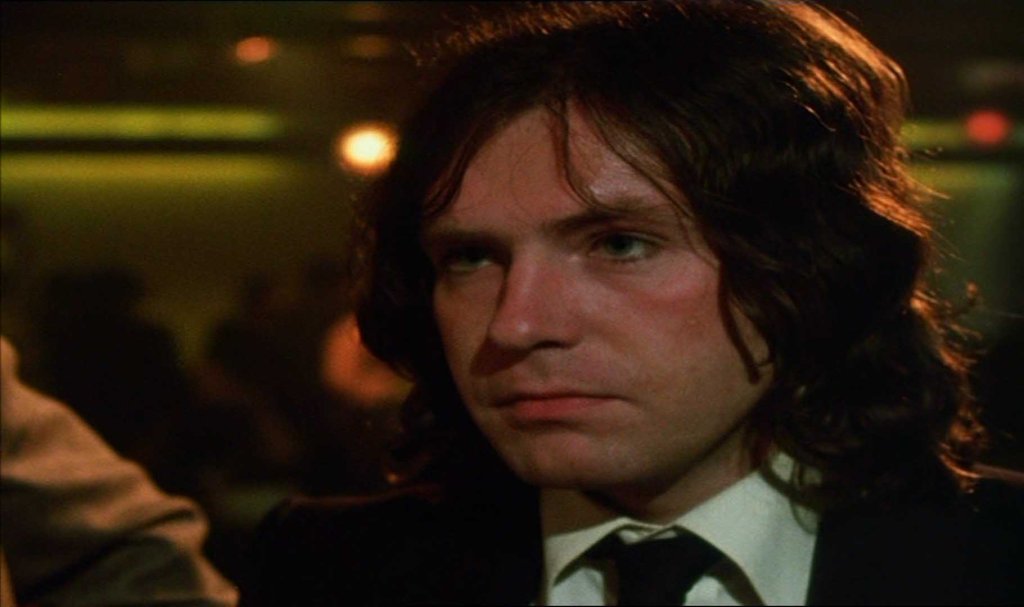
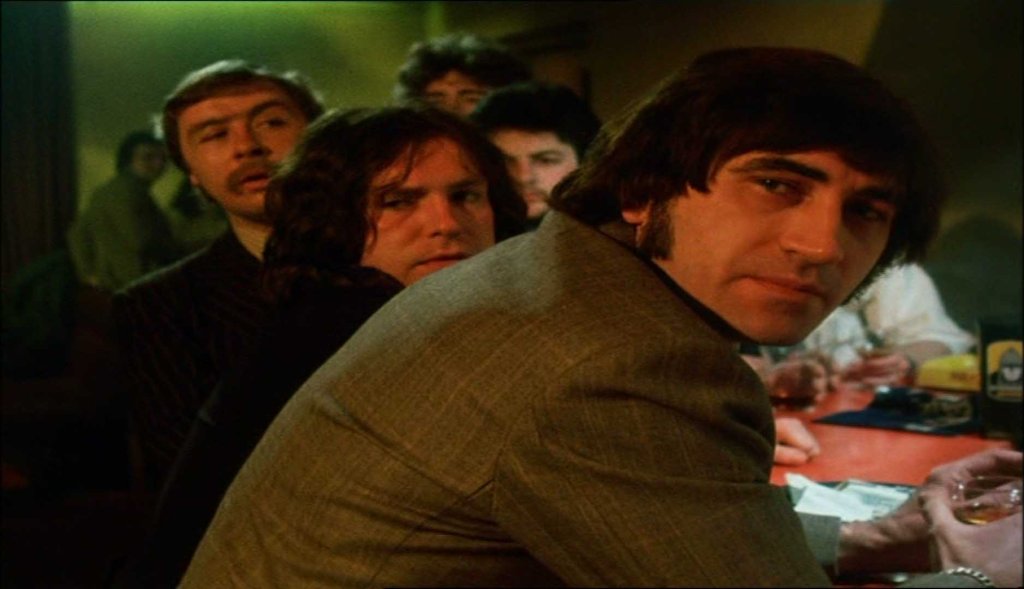
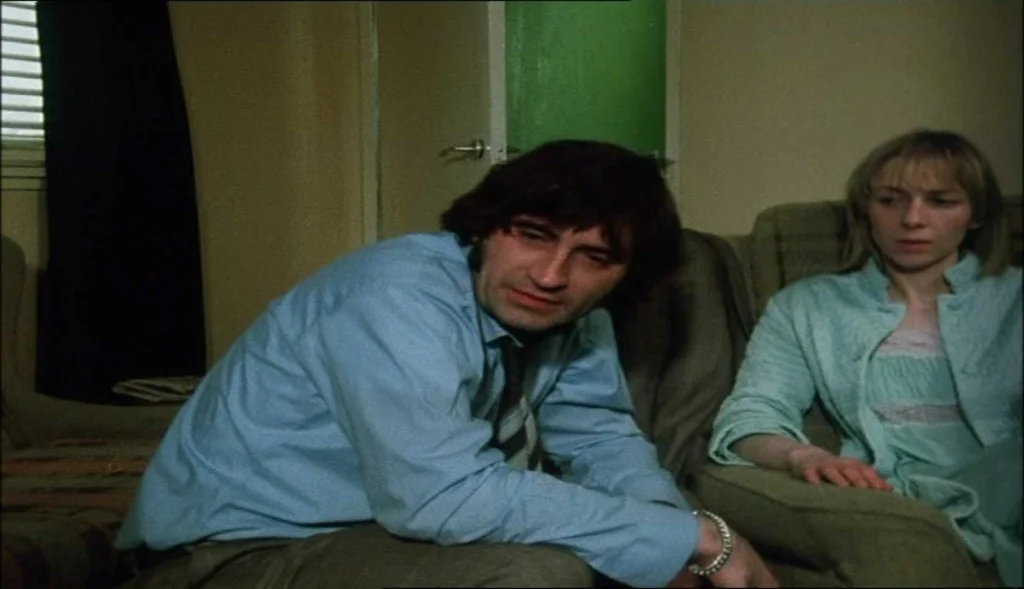
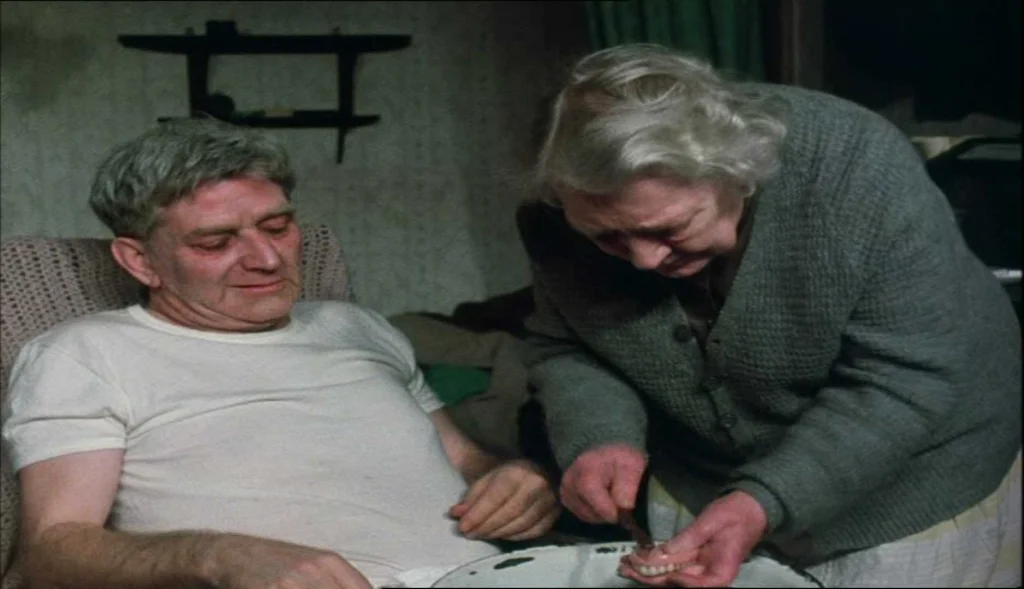
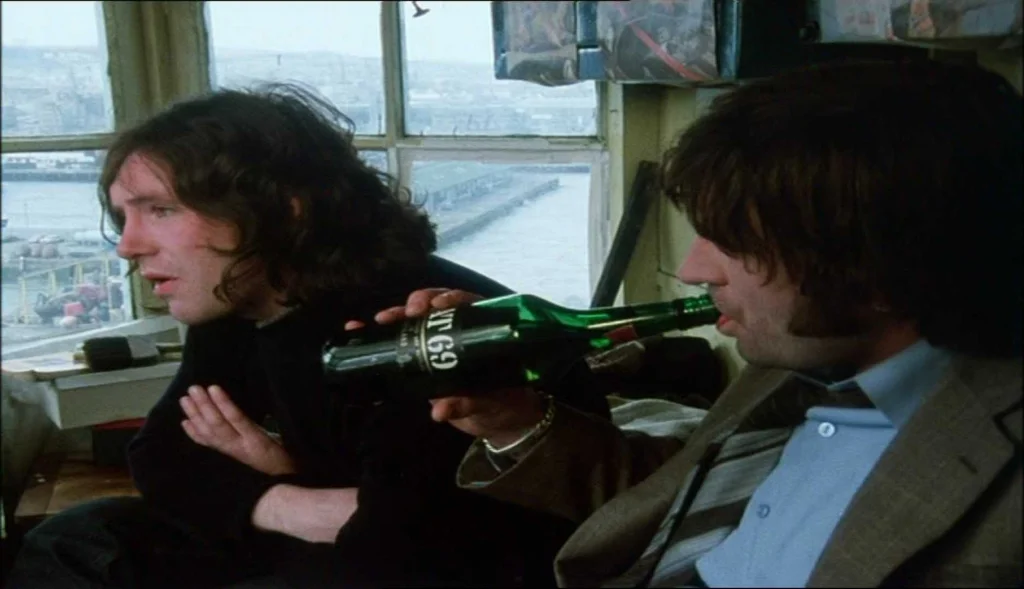
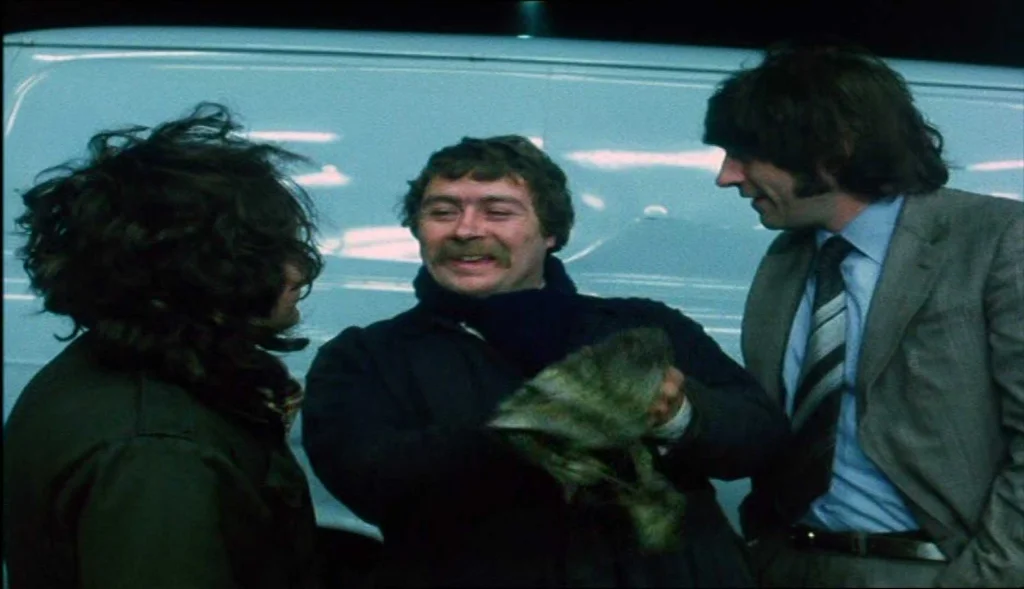
For a drama that is over forty years old it still holds up as strong now as it did back then. In fairness, there’s not a lot to compare it to, being that the output of Scottish television dramas and films ever since then has been abysmal. I mean, If McDougall had not given us his tales of working class lives (and Glenn Chandler had not given us Taggart), Scottish TV drama would have been a cold, dark wilderness during the ’80s and ’90s, like something from one of Tarkovsky’s bleakest films.
I first saw Just A Boys’ Game in 1995, for my NC Media Studies course at West Lothian College (in Bathgate). It left a huge impression on me then, and I still find it a compelling watch now. I always find myself revisiting it every so often, for a number of reasons: I love that all of the locations were real and not sets. From the dark and dingy pubs and the cold and damp streets, to the shipyards of the Clyde. I feel like I am stepping into the Glasgow that I visited in the ’80s, when I went to see my grandparents, who lived just outside Drumchapel.
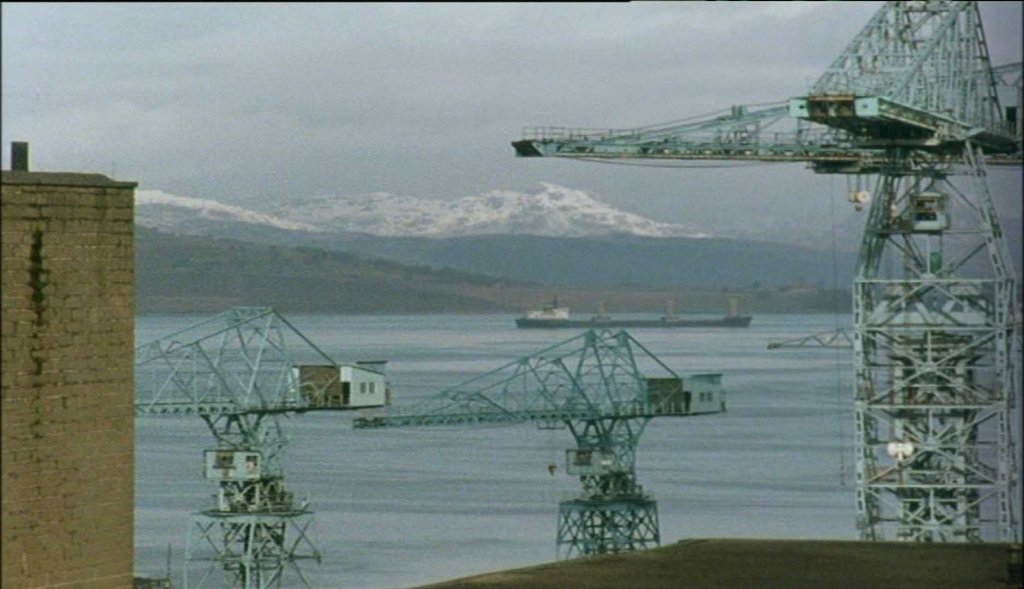
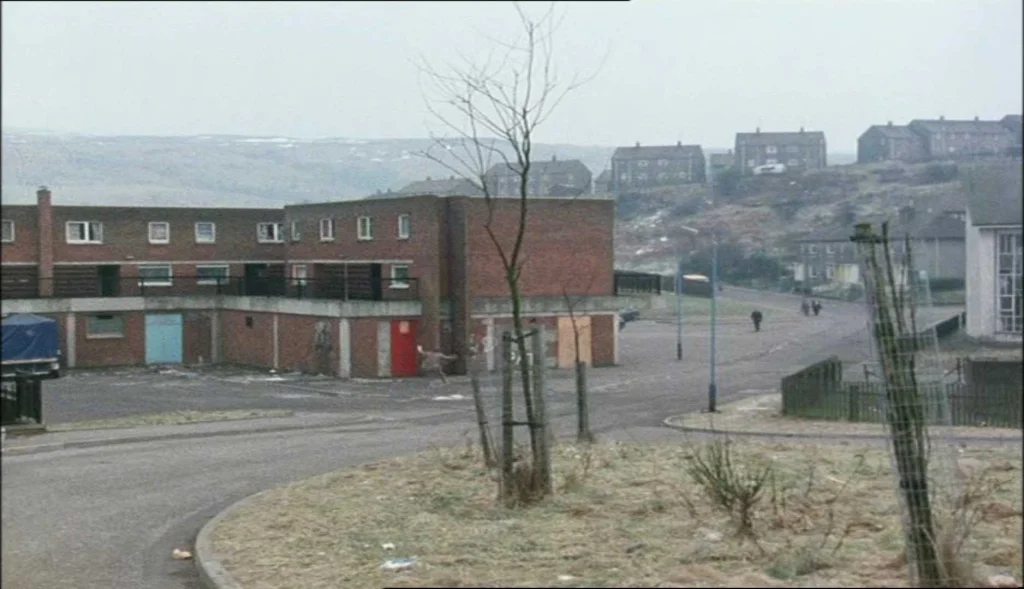
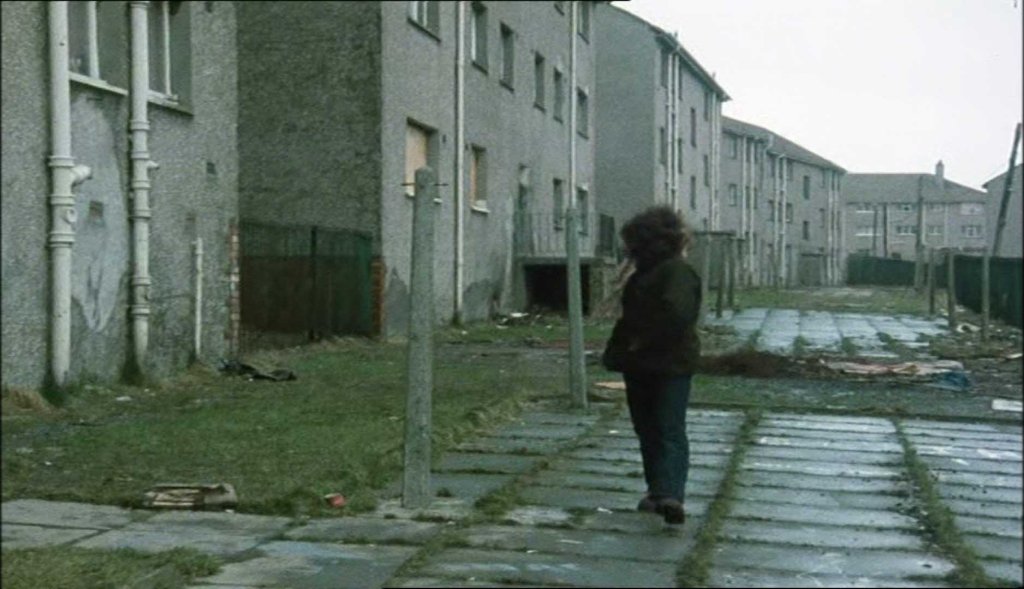
The problem I have with modern television dramas and films that show poverty and working class lives nowadays is that the actors look too good, with their perfect teeth and glowing skin and healthy hair. Their clothes never have that worn, raggedy – frayed sleeves – look about them. And the sets are always too clean; the furniture never looks like it was bought in a charity shop, and the cinematography is usually awash with colour, using the best cameras and lenses making everything look pristine.
It seems that only a handful of filmmakers can effectively do justice to working class lives or stories showing gritty realism and poverty. In terms of British directors, I’m talking about the likes of Mike Leigh and Shane Meadows, Peter Mullan and Ken Loach. They generally use real locations or will spend time with their set designers, making the degradation look real, and will cast actors or non-actors who have lived that life. Or they will at least have their actors modify their appearances to such a degree that they’re a shadow of their former vain selves.
There’s nothing glamourous about the world in Just a Boys’ Game, nor the characters and the way they dress and live. The violence feels raw and real with the way it is shot and choreographed, and in many ways it feels like Scotland’s equivalent to Mean Streets (1973) – as quoted by Martin Scorsese himself.
Certainly Frankie Miller’s performance is worthy of being up there in the Scorsese universe alongside De Niro and Keitel. Interestingly enough, Harvey Keitel would later take the lead in another McDougall penned drama – Down Where the Buffalo Go (1988). There’s one scene in particular in Just a Boys’ Game that gives me goosebumps, even to this day. It’s where Jake (Miller) confronts a young lad in the toilets of a snooker hall and just stares him out. Jake doesn’t say a thing, he just stares at the lad without blinking for a period of time, and this causes the lad to burst into tears. The whole magnitude of Jake’s reputation and the threat of violence really does hit home in that scene alone. It’s a masterpiece example of creating tension and drama using very little dialogue.
The memorable toilet scene
Director John Mackenzie does an excellent job of immersing you into McDougall’s bleak world that’s full of interesting and colourful characters, where poverty is rife and alcohol is a daily necessity. A world where the likes of clatty Bella exists – a woman of ill-repute whom Jake and Dancer visit, and where Jake is appalled at the state of her dingy flat, and almost wretches when Dancer seduces her.
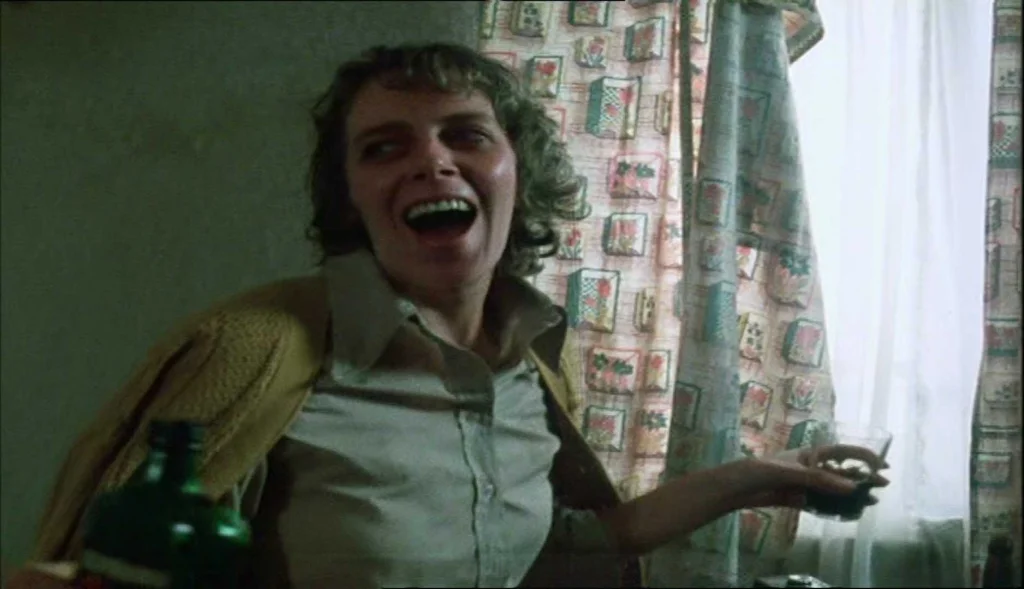
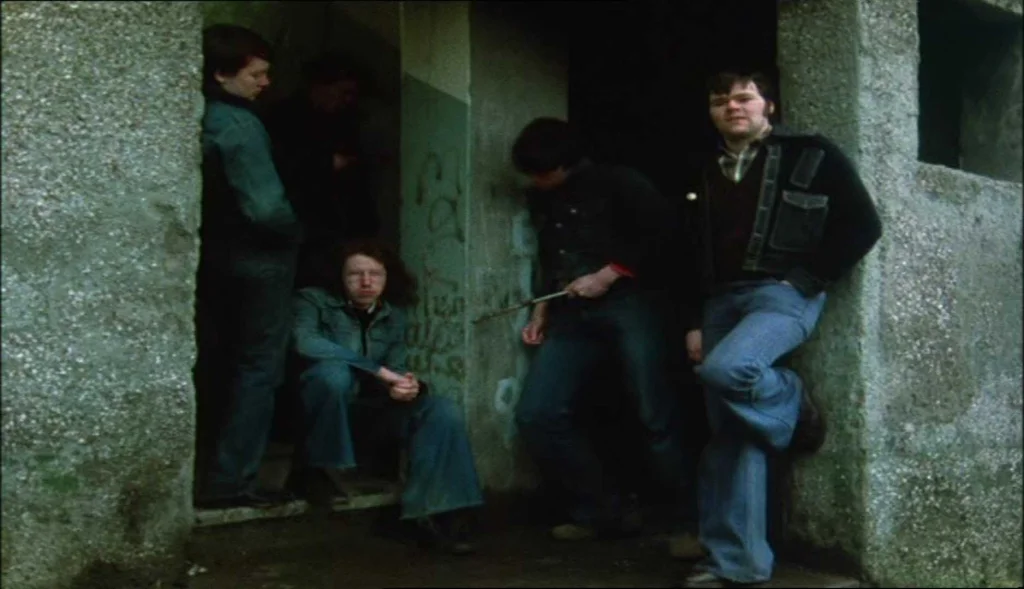
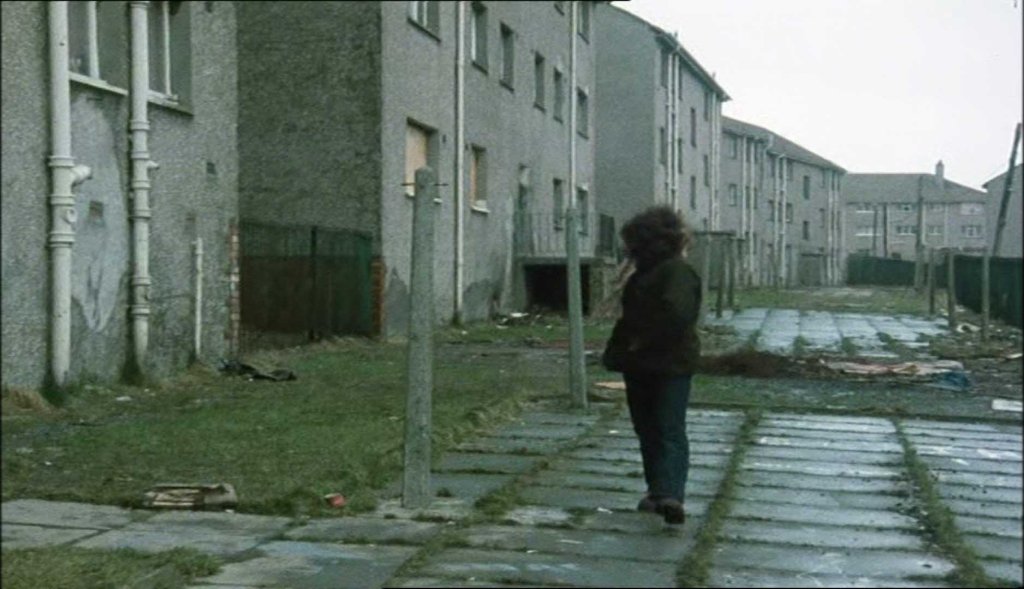
By the time Peter McDougall had written Just a Boys’ Game (1979) he had already written three other dramas for the ‘Play for Today’ series: Just your Luck (1972), Just Another Saturday (1975) and The Elephant’s Graveyard (1976).
Just your Luck (1972) explores the sectarian divide in Scotland with a dramatization of a Protestant girl who finds herself pregnant by a Catholic boy. The sensitive subject matter was controversial at the time, with many complaints filed to the BBC, although much praise for McDougall’s writing followed.
Subsequently, this led to Just Another Saturday (1975) being given the green light after it was initially rejected due to its touchy subject matter. Based on McDougall’s experiences, we follow a young lad (Jon Morrison) as he leads the way as a drum major in the Orange Order. The authenticity and access is remarkable as it was actually filmed during a real Orange walk in Glasgow, and it makes for a hard-hitting docu-style drama.
Screenshots from Just Another Saturday (1975)
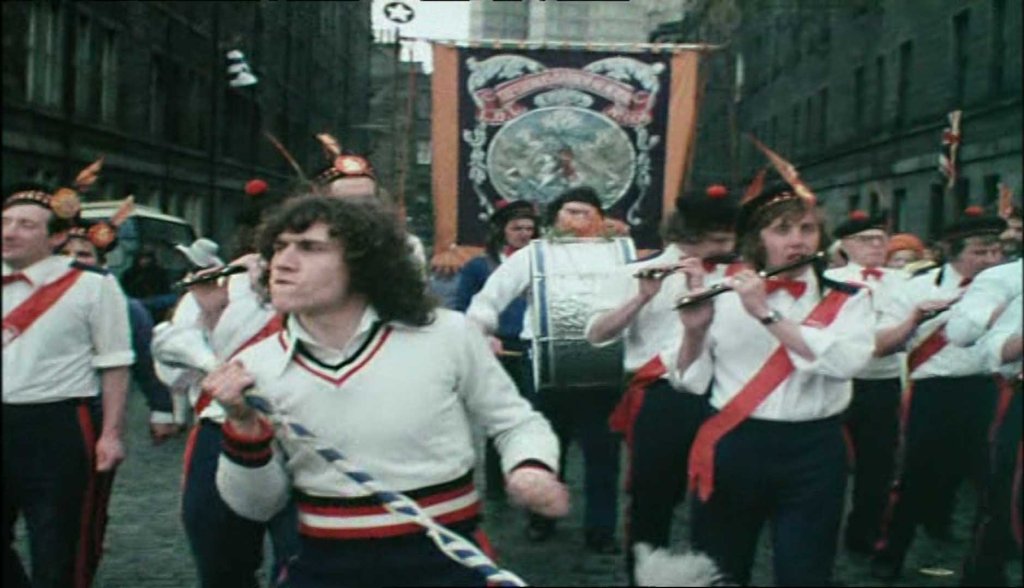
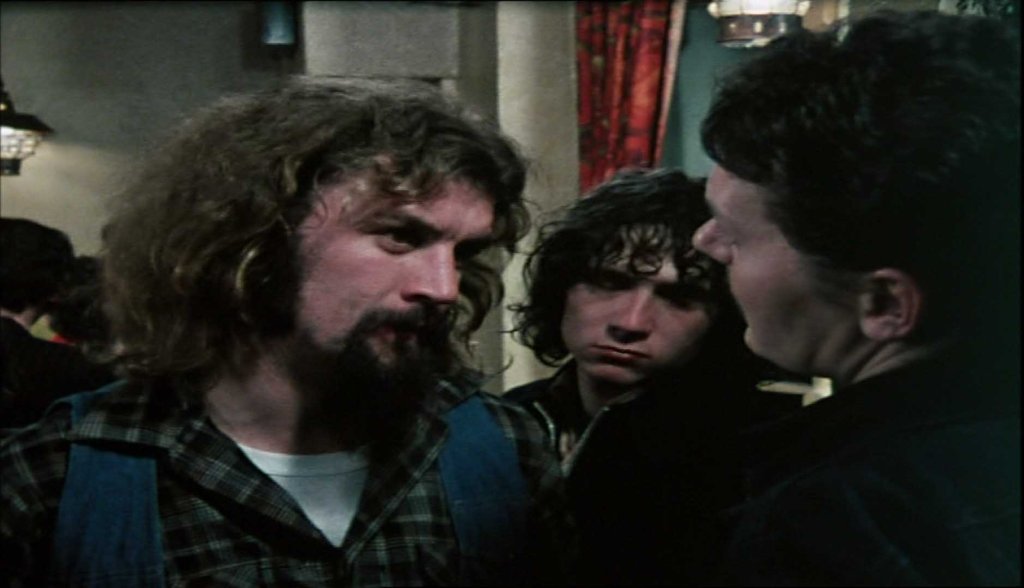
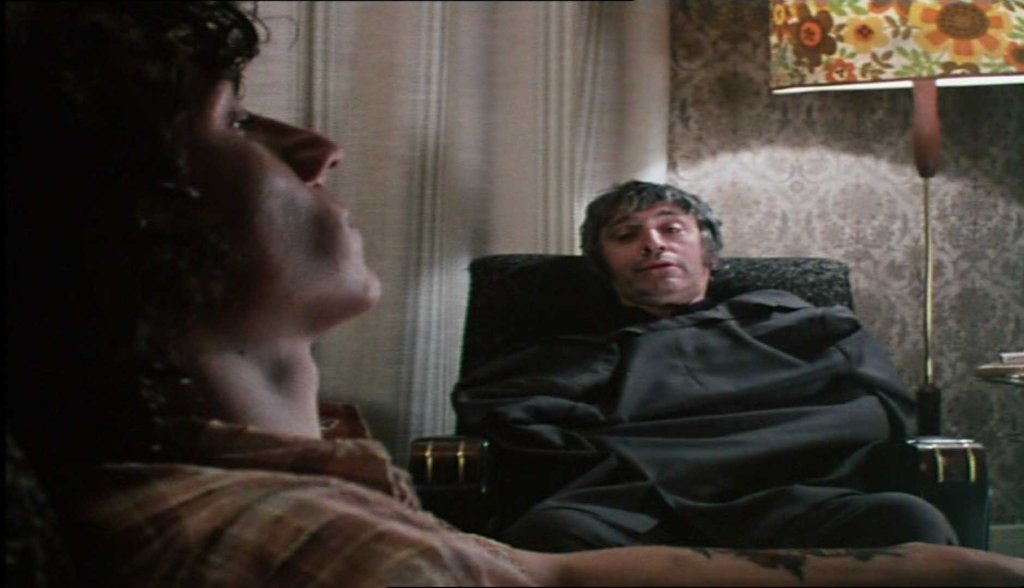
The Elephant’s Graveyard (1976) is an altogether different tale, with Billy Connolly and Jon Morrison as two strangers who meet in the countryside for the day, escaping the monotony and responsibility of their lives. It’s a strange and funny tale in places (unlike most of McDougall’s other work) and it has a dream-like quality about it. It is an oddly engrossing drama, despite only having two characters in one location; a true testament to the quality of the writing and the performances from the two leads.
Screenshots from The Elephant’s Graveyard (1976)
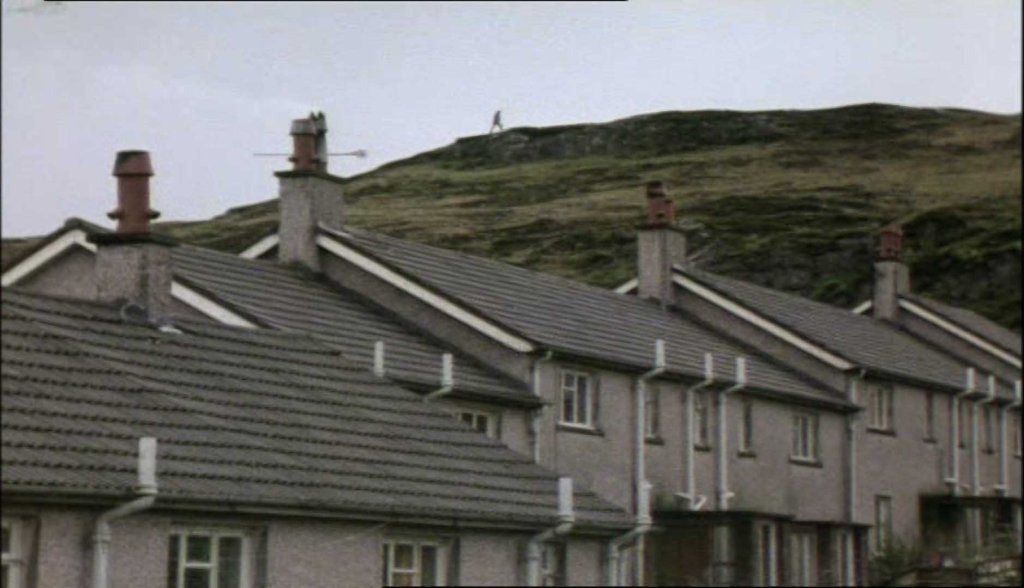
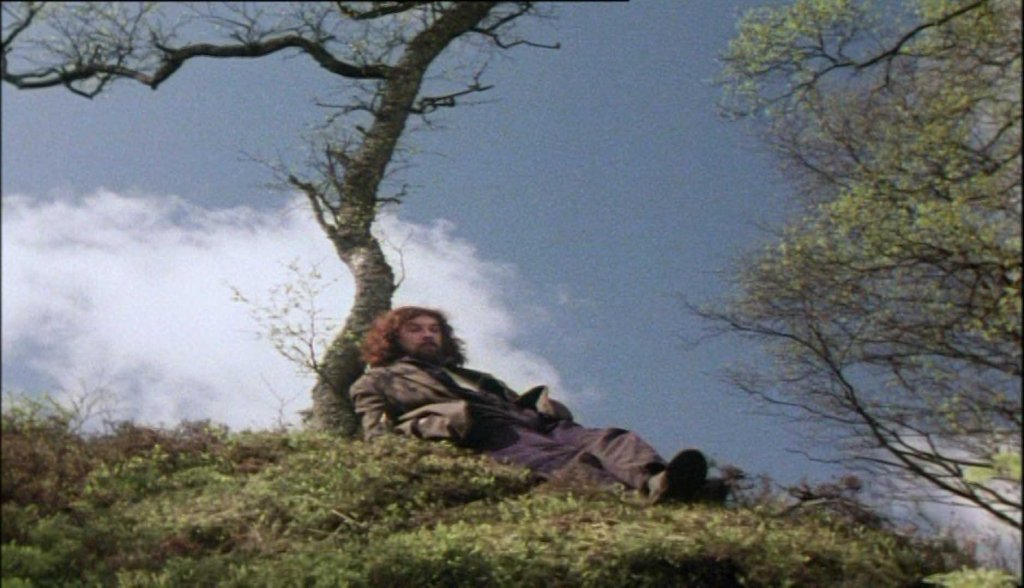
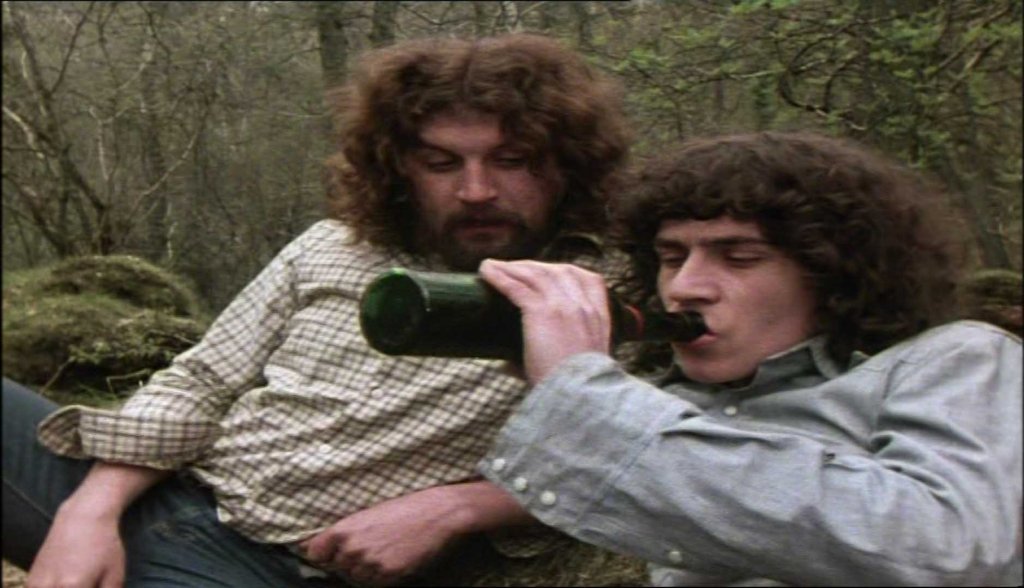
Following the critical acclaim of Just a Boys’ Game, McDougall penned the screenplay for the film adaptation of A Sense of Freedom (1981), with John Mackenzie taking the director reigns once again. Based on the autobiography of the same name, it tells the story of Glasgow gangster Jimmy Boyle who was brutalised in prison after being sentenced to life for murder.
Scottish actor David Hayman took the lead role and gave a gut-wrenching performance in what must have been some of the grittiest prison scenes to reach the silver screen at the time. So much so that the Scottish Prison Service flatly refused the film-makers access to their prisons to film the adaptation, resulting in Dublin’s Kilmainham Jail doubling for Barlinnie (as well as the numerous other penal facilities that Boyle was incarcerated during his years inside).
A Sense of Freedom (1981) would be the last collaboration between Mackenzie and McDougall, both of whom would continue working throughout the ’80s in their respective fields. Mackenzie would later go on to have great directorial success with The Long Good Friday (1980) which subsequently propelled Bob Hoskins into the Hollywood limelight. McDougall would write a couple of more television dramas in the ’80s, and it looked like he had stopped working after he penned a great addition to the Screen One anthology, with Down Among the Big Boys (1993) – a whimsical and yet serious crime caper starring Billy Connolly. More recently, however, he wrote the screenplay for the feature film remake of Whisky Galore (2016), so maybe there are still a few works in pipeline to come.
It would be great if Scotland produced more working-class dramas like his body of work; certainly there’s enough writers and directors and diversity out there now, if only there was the funding to greenlight these projects.

I enjoyed reading this piece. Managed to record JABG in the early 90’s on VHS and during that period I watched it many times. Like yourself I like to revisit it from time-to-time. Indeed it was repeated last night on BBC Scotland channel and I hadn’t seen it for a good, few years. I always love the humour in it from, “don’t call me wee man!” to the old boy in the bogs getting a soaking for his treatment of the young apprentice. It’s a great snapshot of how working class Scotland was during those bleak times.
LikeLike
Yeah, I think a lot of younger filmmakers and writers could learn a lot from it. There’s still a lot of locations in Glasgow that have been untouched since then, but until the Film and TV industry in this country is given support I doubt we’ll see anything as compelling like this again. Cheers! -Tony-
LikeLike